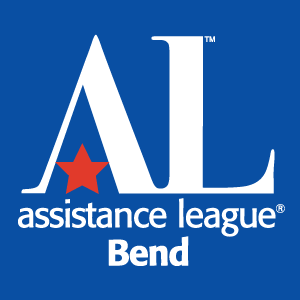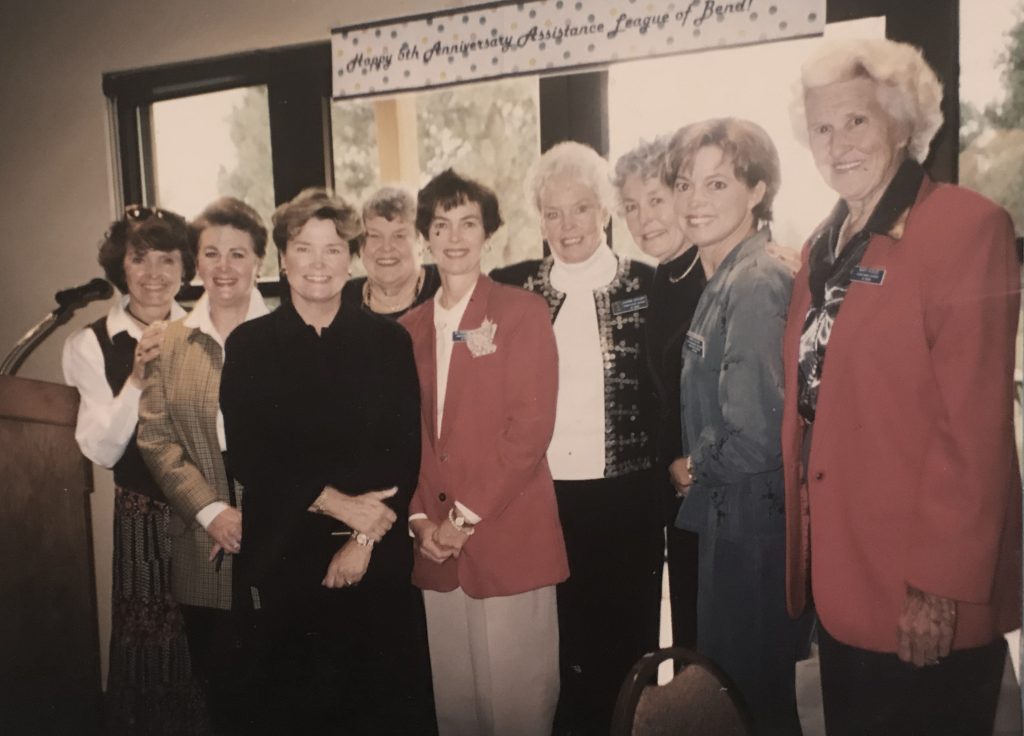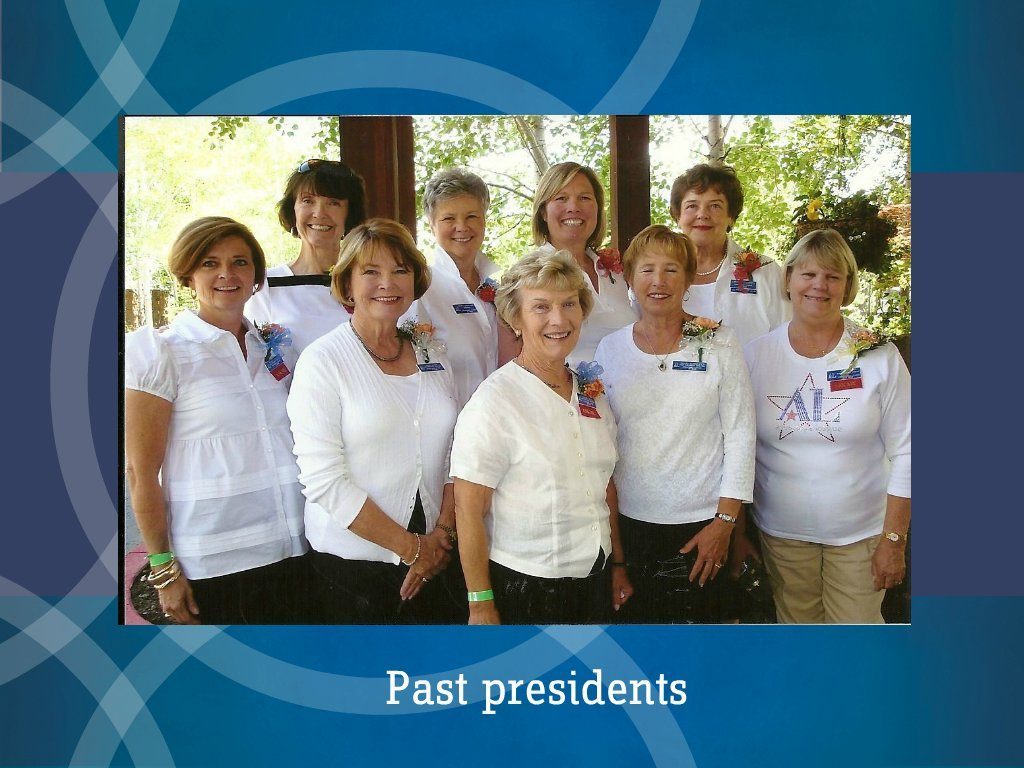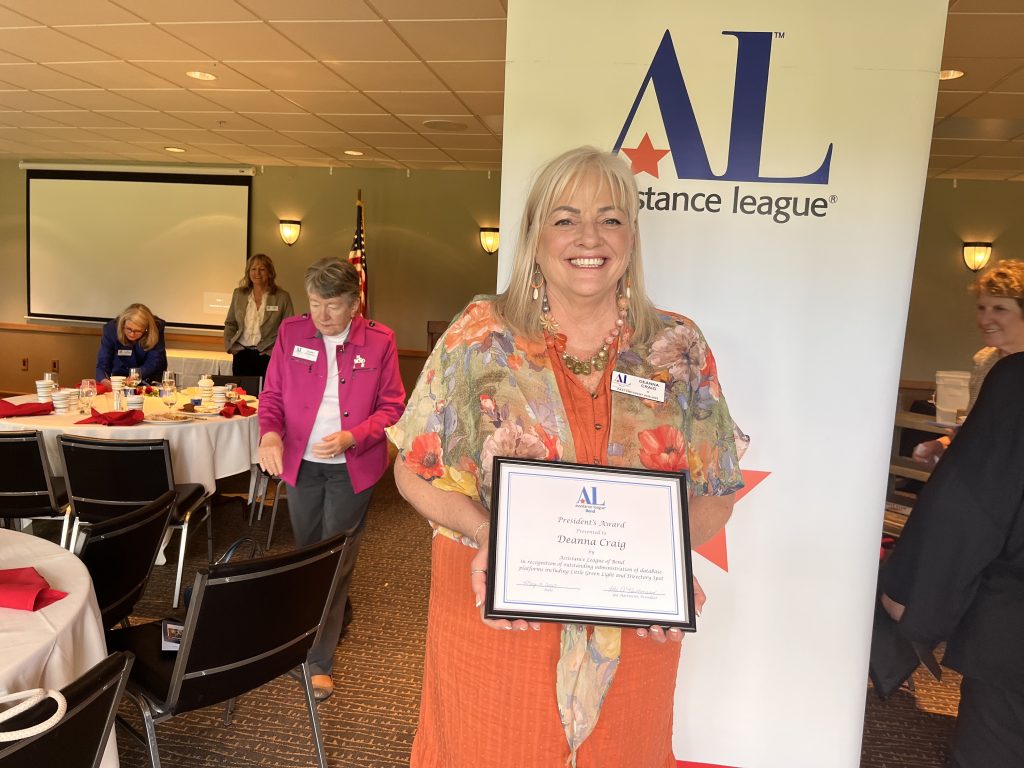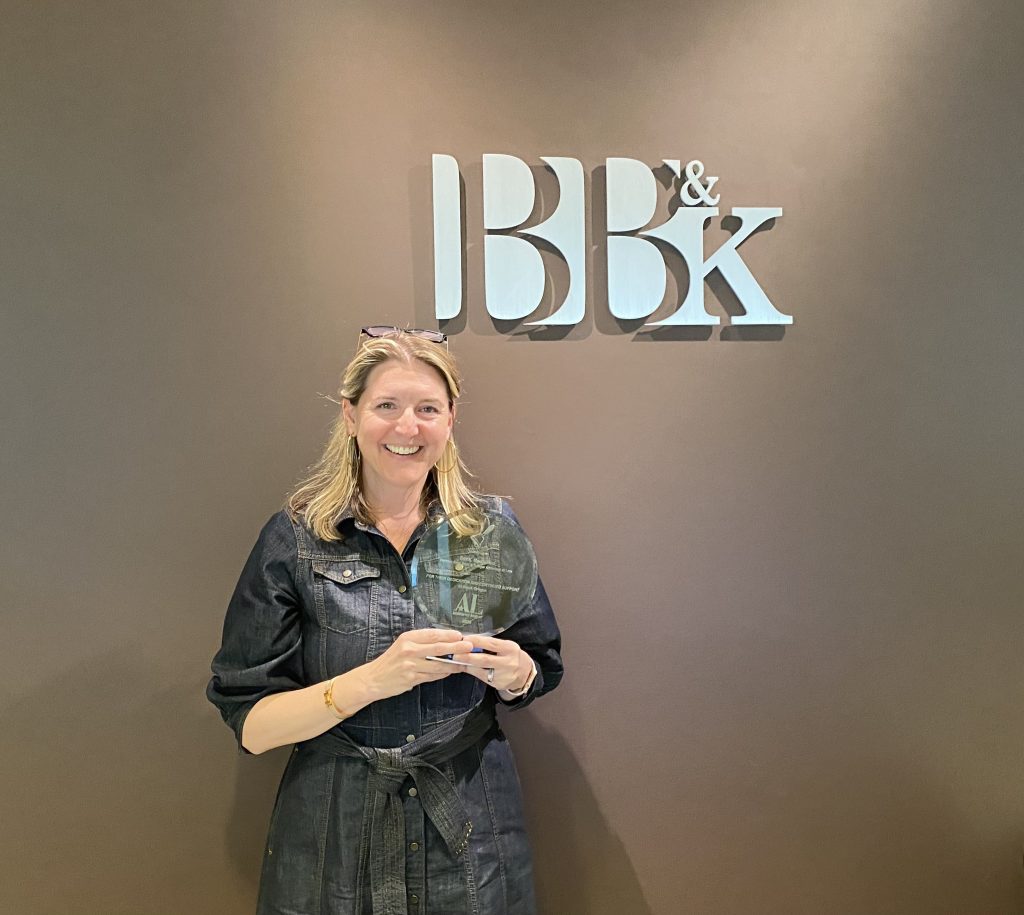EXPLORE OUR HISTORY…
1989
Seven women formed a service organization dedicated to helping vulnerable children and adults in their community.
1991
Operation School Bell® began and provided clothing to 30 school children in its inaugural year.
Breakfast with Santa began to provide a special breakfast to local foster children and their families.
1992
Senior Caring was added as a program to serve low-income seniors.
1993
Assistance League of Bend was officially chartered as the 92nd chapter of Assistance League.
The Chapter House was purchased.
1995
Kitchen Kaleidoscope began as a signature fundraiser.
Cottage Collectibles, a thrift shop, began to provide additional funding.
Festival of Trees began as a major annual fundraiser.
1997
Hats, Hats, Hats was introduced to provide handmade hats to chemo patients.
2001
Assistance League of Bend formed an Advisory Council in the Spring of 2001.
2002
Assistance League of Bend became a “21 Cares for Kids” partner.
2003
These Kids are Cookin’ began to promote healthy eating to low-income elementary students.
Be There Be Square, a program that rewards at-risk teens for perfect attendance at the alternative high school, began.
2007
A major expansion of the Chapter House remodeled the existing chapter house and added on to accommodate dressing students in need for Operation School Bell.
2009
Operation School Bell dressing was moved from the chapter house to a local retail store.
2010
Combined Communications became a media partner.
2015
My Life Story Books was introduced to provide hand-crafted memory books for foster children.
2018
Cinderella’s Closet opens to provide prom dresses to local teens who would be otherwise unable to attend their school prom due to lack of appropriate clothing.
2020
The novel COVID-19 virus became a worldwide pandemic in March of 2020. Assistance League of Bend continued to adapt to meet the changing needs in our community. In the beginning we provided personal protective equipment for health care workers, sewing masks and emergency room hats, when there were large shortages. We surveyed the community to access the greatest needs for children and families as they navigated the challenges of distance learning. To address these needs we distributed warm clothes and age-appropriate books to children in need at pop-ups throughout Deschutes County. In addition, we provided tutoring scholarships for children that needed extra help with their schoolwork. Our in-person fundraisers had to be canceled. In response, we launched a successful multi-platform marketing campaign to raise money to support our programs entitled “I Need Clothes”.
2023
Therapeutic Lavender Pillow Project added to Hars & More (formerly Hats, Hats, Hats). Each pillow is crafted with care by dedicated members and volunteers, who lovingly harvest lavender, sew, and fill each casing. The result is a handmade product that delivers warmth, relief, and a sense of calm.
2024
Raise a Glass for the Kids finally made its debut as our primary fundraiser in September at the Tetherow Event Pavillion afer being canceled in 2021 due to the pandemic. The evening was a resounding success, filled with exciting live auction items, delectable appetizers, inspiring stories, and live entertainment. We hope to make this an annual event in lieu of the Holiday Gala.
